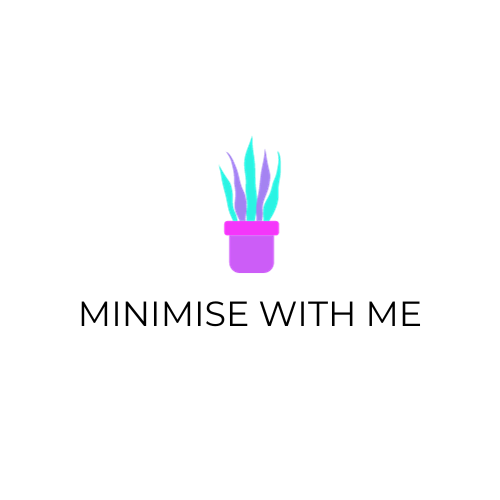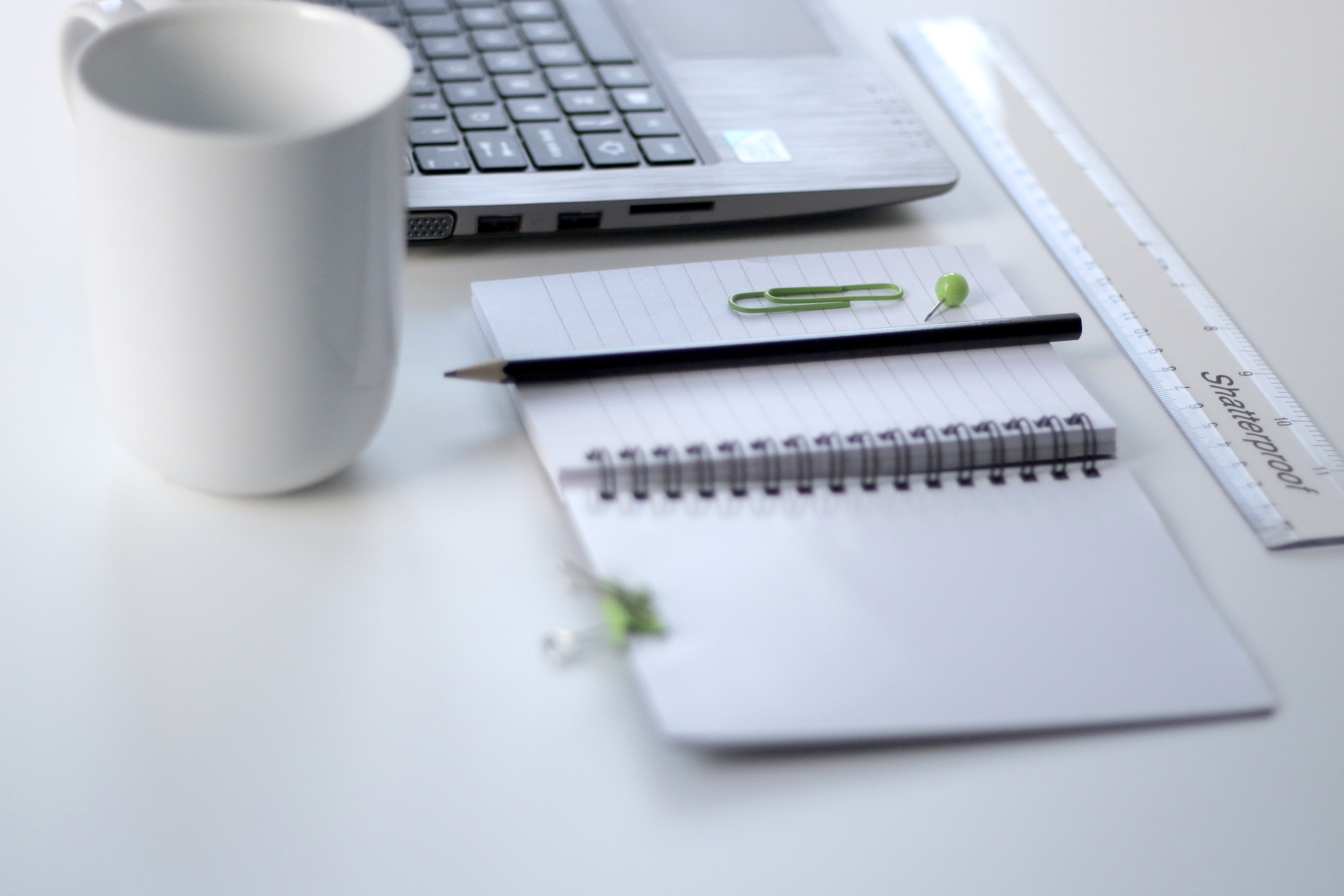What if I told you there was a whole new way to financial stability that you may have not yet heard or considered? You might say something in reply like ‘Well, I’ve tried everything and there is no way I can get ahead’ Or ‘I don’t earn enough to save or have any financial stability’. But don’t fret!
What if I could show you that there was a way to get your finances in order without having to save every cent. Without living miserably whilst trying to keep your head afloat financially. Hoping that one day you would land a better paying job or win the lotto and your financial problems would be solved. A lifestyle where you could buy that expensive insert quality material possession you’ve wanted guilt free with a bit of forethought.
A couple of years ago, I stumbled across the term Minimalism by accident. It was during my lunch time Pinterest scroll where a few Pins came across my feed. I’d never really heard of ‘Minimalism’ before and wanted to learn more. I started to read the first post I came across. Then another and another. I became infatuated with the idea of living a more intentional life, reducing the excess to focus on the essential. Not long after I was reading and watching everything I could about the Minimalist lifestyle. What I didn’t realise at the time was how much this would have a positive effect on my financial stability.
Fast forward a couple of years to the present as I am typing this article. Minimalism has allowed me to change my whole relationship with money. I’ve always considered myself a frugal person that budgeted and saved and was keen to stay out of debt as much as possible. Those are all great financial habits and helpful to get to a point of financial stability, but I now see the missing piece of the puzzle. Through Minimalism, I have developed a more intentional approach to my finances and even more foresight for my financial future than ever before.
In the past most of my financial decisions were based on a price basis. I’d ask myself questions like – Was what I was buying a good price? Was is it on sale? Good questions by all means but they weren’t getting to the heart of the spending issue. Minimalism has opened my thought process up to a whole new dimension of financial decision making.
Instead of being focused just on price, I now consider other aspects of the purchase. These include asking myself questions before spending my money such as; is this the best use of my money? Could something I already have do the same job? Could I borrow this from a friend or family member if I only need to use it for a short amount of time? Is this something that will last me and be a quality product? Could my money be better utilised elsewhere?
The Minimalists define Minimalism as a tool that allows you to make decisions more consciously, more deliberately. To live a minimalist life to me, means living within your means and living more intentionally, getting off auto-pilot and reassessing your daily interactions and decisions. This I believe, is the key to financial stability. It doesn’t matter if you are earning a six figure salary and are spending more than six figures or only on a small wage. Minimalism can be used to help people on any income at any point on their financial journey.
I have found Minimalism a great tool in many areas of my life and one that can greatly add to your financial health. Here is How I discovered Financial Stability Through Minimalism.
- I trust myself to plan for the future.
I know that I will, through everyday actions, be thinking of ‘future me’ and how I can ensure ‘future me’ is not left behind at the expense of ‘today me’. This gives me confidence to know that my financial future will be one of stability as I have plans in place in order to prepare for any financial emergencies that may present themselves unexpectedly.
- I consider the bigger picture in decision making.
Minimalism has taught me to consider each purchase and take pause. Every purchase is well thought out and intentional. If I’m in kmart it’s because I’ve already made a list of what I need or want, where I am buying it and asked why I am buying it, and where it’ll be stored in my home. The temptation to impulse buy is reduced when you have to stop and think about your purchase decisions more thoroughly. The less I am buying on impulse, the less I will have to deal with buyers remorse and the shopping hangover that comes after a shopping binge.
- I no longer feel the need to impress or keep up with others.
Minimalism has taught me to appreciate what I do have and shown me that I don’t need to make decisions to impress others. Being more aware of what truly makes me happy gives me financial stability and the financial freedom to make decisions for the right reasons, not to impress others.
Not everyone has the same financial circumstances and bank account balance as you. No one knows what everyone’s personal financials are and we shouldn’t be blindly trying to keep up at the expense of our own financial stability. If you want something and can afford it, that’s great, but don’t do it because of some need to impress others.
- You’re more aware of your needs vs wants.
We bought our first home in our mid 20s, assuming at some point in the future we’d need to upsize when our one garage home with small rooms and one bathroom started feeling claustrophobic. Since discovering minimalism, instead of upsizing to a larger home, we donated, sold and cleared over half our our possessions.
Rather than getting a bigger home (and mortgage to go with it) we’ve stuck with our humble abode that is the perfect size for us. Sure, it might be nice to have some extra space and a more modern home, who doesn’t want that?! But we would rather have a smaller mortgage we can comfortably afford to pay. And even better, being able to afford additional payments means we can be debt free earlier and that is more important to us.
- Seeing the importance of planning for unexpected financial disasters.
Before I discovered minimalism I maintained a small emergency fund and always made sure that if the car broke down or the hot water system blew we wouldn’t be stuck. There was some foresight to tackle any small potential disasters. But it was through discovering minimalism that I discovered a whole new level of financial stability.
I learnt how important it was to forgo temporary joy in the present for my future financial stability. This includes saving up three to six months of expenses to prepare for even bigger hiccups such as the possibility of a job loss. Having a goal to get an emergency fund of three to six months of expenses is no easy feat, but certainly adds a level of financial security.
If you were to lose your job tomorrow with a few months of pay stashed away, it would still be an unexpected development but one that you were prepared for. This emergency fund could give you the time to find a new job without worrying how you will pay your bills or put food on the table.
- I value my time and money more
Minimalism has taught me to value my time and money more and that means finding ways to spend my hard earned cash more efficiently. Like looking for new ways to decrease my expenditure and therefore hours required to earn that money, without necessarily decreasing my spending. Spending time to find discounts on bills such as insurance, registration, utilities, and phone bills which can add up quickly in your budget and often only require a quick call or online quote.
I save time by automating my saving transfers and ensure my money is transferred to a separate savings account before I am even tempted to spend it.
Each small investment of my time to reduce expenses not only decreases the time I need to spend working to earn that money, but also better manage my money so it can be better utilised and contributing to my financial stability.
- Minimalism frees up time which can in turn increase your savings.
In addition to the above point, one of the biggest benefits of minimalism is finding more free time and using it more efficiently. When you spend less time organising, cleaning, maintaining stuff and less time shopping for things you don’t need, you open up time to dedicate to more value adding activities.
This could include freeing up time you might have spend at the mall that you can now dedicate to reviewing your budget and analysing your expenditure to check in with your finance goals and to be more in control of your finances.
It can also free up time that might otherwise have been wasted. This could allow you to take up a side hustle to bring in extra income to further contribute to your financial stability.
- My debt appetite has been re-routed.
Minimalism has helped me to become more aware of how intrinsic debt is in our society. People will pay out their car loan and not long after they are going out to buy another car with another hefty loan. They are so accustomed to having a debt repayment they haven’t even considered what else they could be doing with their money if they were just willing to hold onto a slightly older vehicle. I am now even more unwilling to go into debt than ever before and focused on reducing my current debt as quickly as possible.
Having less credit card debt, or any other kind frees up your cash to invest in your savings account and allows you more financial freedom to plan for the future. If we don’t have cash for something we don’t buy it. Our emergency fund also helps ensure we never have to rely on a credit card for unexpected costs.
- Minimalism encourages living within your means.
If you are not living within your means, your income is less than your expenses and you are going to end up going into debt to fund your lifestyle. Minimalism has shown me that it is possible to save and have financial stability despite the level of income, if I choose to live within my means.
Just because you earn six figures doesn’t give you the ability to be financially naïve and ignore your incomings and outgoings. Nor does it mean someone on $40000 can’t have a savings balance. By working out your income and expenses for the pay period and planning your budget, you can ensure that you aren’t spending more than you earn.
- Always asking is this the best use of my money?
Minimalism has taught me the importance of re-evaluating where my money is spent and asking whether that is the best use of my savings and income. It has shown me the importance of acting in the best interest of my goals.
Maybe you want to go on a trip to Europe next year but your friends want to go on regular shopping days. Or your friends asked you to go out for an expensive night of bar hopping that is going to blow your entire weeks spending budget. Minimalism reinforces how important it is to make intentional decisions each day to reach your goals.
Being more intentional about how I spend my money has helped me reach financial stability. Don’t be afraid to say no to an event or suggest alternate budget-friendly plans if something is going to put you in a financial pickle. Being open honest with friends and family can make this easier. If they understand your goals and why you are savings I’m sure they will be happy to make more budget friendly plans that can involve you.
Have you discovered financial stability through Minimalism? Please comment below and share your experiences!
If you loved this you may also enjoy reading 10 Benefits of a Minimalist Inspired Lifestyle.
If you found value in this post I would be super appreciative if you could share it with others who might also find value in it 🙂
![]()



